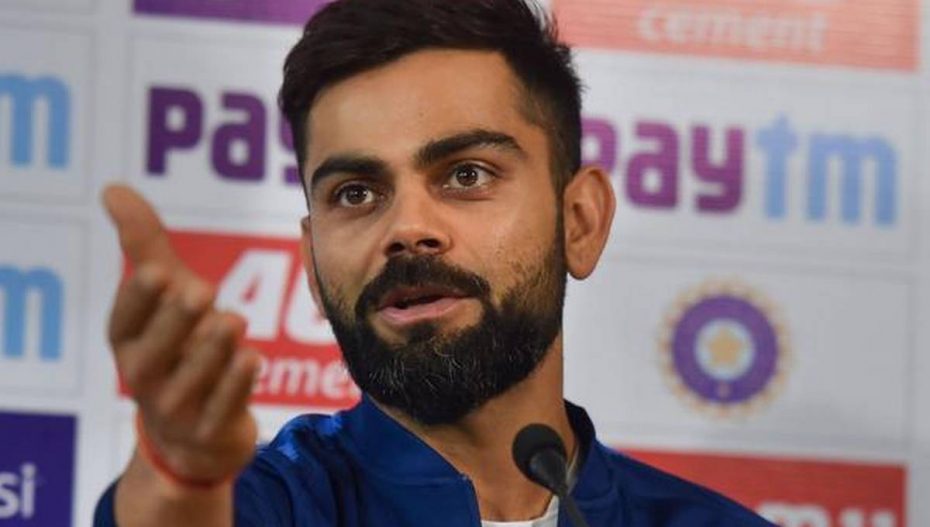Virat Kohli’s tenure as captain saw a muted kind of end, with India’s shockingly early exit from the ongoing ICC T20 World Cup. Much before the tournament began, Kohli had formally announced his intention to step down as T20 captain. It was odd timing for such an announcement – if the idea had been playing on Kohli’s mind, why didn’t Team India go into the World Cup under the leadership of his successor, one might ask. If not, why not defer that statement?
Indian players and the BCCI have been engaging in small skirmishes ever since the England tour. Rumours had been rife on the management considering split captaincy. News of Kohli stepping down, oddly enough, first popped up on his personal social media account, deviating from the formal routine of a press release by the board.
Strangely, Kohli chose to continue to lead the side in the ODI format, which has little precedent elsewhere. Split captaincy essentially divides the role between Test cricket and shorter formats. With the 50-over format also losing popularity, it might not be long before Kohli may relinquish his job as ODI captain too.
Nonetheless, all of this signifies Kohli taking a break from his de facto position as the alpha male of Indian cricket. As captain, Kohli effectively reports to the son of the home minister of India. Although Jay Shah only occupies the second most powerful office in the BCCI, there is no denying the influence the ruling government wrests over the BCCI. Ever since the leadership overhaul in 2019, the board serves as an extended fiefdom of the Bharatiya Janata Party (BJP), as twisted a power dynamic that might be in Indian cricket today.
Kohli has been around for long enough to have a complete grasp of how the system works and where his bread is buttered. Any gesture from his end that does not sit well with the general public mood may very well result in his brand quotient taking a massive hit.
And yet, enough was enough for the Indian captain when the ugliest face of Hindutva reared its head in the wake of India’s crushing defeat to Pakistan in the T20 World Cup. Mohammed Shami, the team’s only Muslim member, faced blatant Islamophobic abuse on social media.
That was Kohli’s tipping point. He had remained silent when former Indian cricketer Wasim Jaffer had faced communal bigotry from those holding important offices, not too long ago. He toed the line when asked to tweet in support of the government during the farmer protests. He made friendly appearances on Prime Minister Narendra Modi’s ‘Fit India’ campaign. Kohli, in fact, was among the first major Indian celebrities to explicitly endorse demonetisation — exactly five years ago.
All of this was exactly what is expected out of someone professionally contracted with the BCCI – an organisation uncomfortably close to the ruling political class. Therefore, Kohli explicitly acknowledging the communal nature of Shami’s targeting felt unreal.
Was it Kohli’s personal fondness for Shami that was too overpowering for him to remain silent? Was it his own personal gripe, after having faced a barrage of online abuse for merely asking people to exercise moderation in their Diwali celebrations? Whatever triggered the unfiltered response in that press conference, Kohli showed it is entirely possible for those in a position of power to speak out their minds when they want and that the fears of repercussions are, while not entirely imaginary, definitely overplayed. Kohli’s words sent the right-wing online ecosystem into overdrive and he ended up facing another round of abuse; extending to his nine-month-old daughter.
But in the end, it did not matter. His stature, his commercial value, and his socio-economic privilege are too strong for even the most committed of ideological forces to cause him any real damage. His endorsements are intact. His fandom remains just as hysterical.
Kohli’s popularity among the masses still remains an extremely important vehicle for the Indian government to carry out soft propaganda. But his words and actions in the last couple of weeks have put to rest the conveniently forged explanations for celebrities in India not being able to speak out on important socio-political matters. His outburst showed that when they intend to, there’s indeed no stopping them.
In stepping down as T20 captain, Kohli has relinquished a third of his leadership role. It may not be long before he’s only left with a third of it. But in his final stretch as leader of the men in blue, he’s perhaps leaving behind something of far greater value. This won’t be the last time a Muslim cricketer’s loyalty to India is brought into question. But the next time it happens, he will know that his team has got his back.













